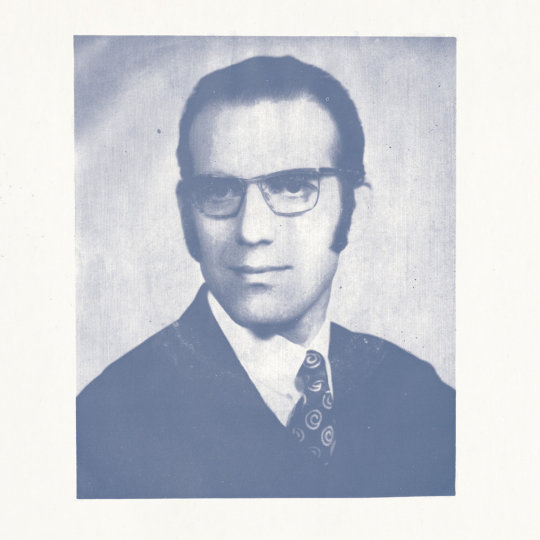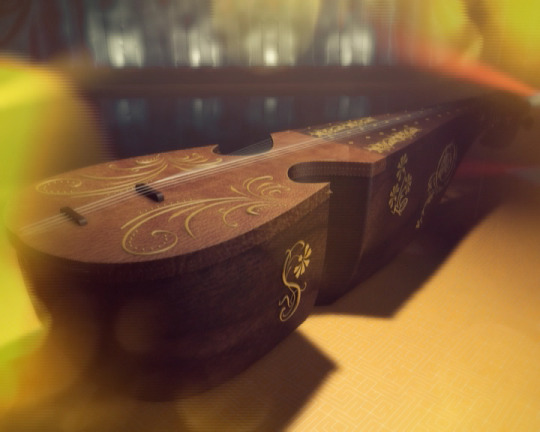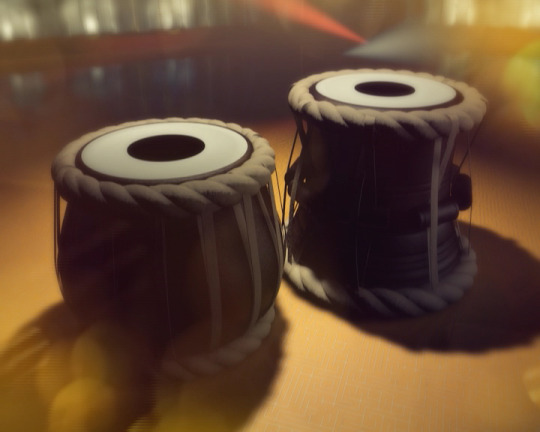#pashto ghazal
Text
یار دصفت محتاجه نه دی
My love doesn't need compliments
پہ ګلابونو عطر چا شیندلې دينه
Who has ever sprayed perfume on roses?
#pashto#lit#pashto-literature#pashto lines#pashto poetry#pashto shayari#pashto literature#poetry#pashto ghazal#pashto tappa#pashto quotes#pashto lyrics
3K notes
·
View notes
Text
294: Nashenas // Life is a Heavy Burden

Life is a Heavy Burden
Nashenas
2022, Strut (Bandcamp)
Nashenas is one of Afghanistan’s most beloved twentieth century singers. Born in Kandahar in 1935, he was raised in Karachi, British India (now Pakistan) before his family returned to Afghanistan during his adolescence. By his early 20s he had become a popular vocalist, with a weekly national radio slot singing traditional poetry, adaptations of popular Bollywood songs, and (with increasing frequency) his own compositions in Dari and Pashto.
Most of his work is in the ghazal tradition, a form of Arabo-Persian poetic ode (classically a simultaneous address to an absent lover and to God) that has remained popular in the East for nearly 1,500 years. The songs have a meditative consistency of rhythm, his vocals carrying the melody as he accompanies himself with drones on the harmonium while a tabla player supplies percussion, verses broken by instrumental refrains that answer the vocal melody. Nashenas has a panged yet resigned style suitable to the form, never leaning into cheap emotional theatrics. He spools out his words patiently, great feeling leavened by enlightened reservation. I picture him with his eyes closed, sitting cross-legged as he hums and croons the words that billow from the incense burning within him till the room has filled with it. Despite the focus on his voice though, this is quite dynamic music: the drumming on songs like “Life is a Heavy Burden” provides a raw, intense counterpoint to Nashenas’s steady vocal, while the blissful harmonium drone of “I Am Happy Alone” finds a common note with the primary colours of music made by children, outsider folkies, and the untrained.
youtube
Physical media wasn’t common in Afghanistan when Nashenas was establishing himself, and radio broadcasts were the primary outlet for performers. What recordings he did make were largely for radio archives, and many of these were apparently destroyed in the wars that have ravaged the region for decades. As a result, little of Nashenas’s prime is well-documented, and prior to this compilation virtually none of what does exist had been released in the West. Life is a Heavy Burden: The Songs and Poetry of Nashenas collects highlights from a brief run of Iranian 45 pressings of Radio Afghanistan recordings from the late ‘50s. The liners elaborate:
Although hard to fully confirm, it appeared these records were part of an arrangement between someone in Radio Afghanistan and Royal, one of the major labels in Iran. …Recordings were presumably supplied to the pressing plant in Tehran to be manufactured and then sold to the Afghan diaspora in the country, or exported back to Afghanistan. It was ultimately unsuccessful, with a few singles released by Nashenas, Zaland, his wife Sara, and others such as Ustad Mahwash, Ghulam Dastagir Shaida, and Ahmad Wali. Whoever arranged it apparently did not inform the artists themselves!
You’d never know how screamingly rare these pieces are, or that they were not sourced from masters, from the job Strut Records has done with Life is a Heavy Burden. The fidelity is brilliant, clearly of another epoch in terms of technology but unmarred by the dust and rough handling endured by near-70-year-old second-hand discs. I’d recommend this one to anyone with an interest in mid-century music from the Middle East and South Asia, or its influence on Western pop and experimental music from the ‘60s onward.
294/365
#nashenas#afghan music#afghanistan#middle eastern music#ghazal#ghazals#urdu music#dari music#pashto music#urdu#dari#pashto#'50s music#music review#vinyl record#strut records
4 notes
·
View notes
Text
تمہیں یاد کرنے کے اتنے عادی ہو گئے ہیں ہم, کے اب اگر ملجاؤ تو تمہارے ملجانے پر غم ہوگا.
I'm so accustomed of missing you, that even if I get you I'd be more upset of having you.

#aesthetic#incorrect quotes#literature#love#poetry#poets on tumblr#quoteoftheday#fiction#libraries#urdu ghazal#urdulovers#urdu quote#urduzaban#ishq poetry#pakistan#farsi quotes#pashto#i love you#english#instafollow
22 notes
·
View notes
Text
په ګډا درته روان یم، زه هم پوهه يمه
تندٙکونه په هر ګام دی او کاڼی لا وریږی
-
میں تم تک رقص کرتا آرہا ہوں، جانتا ہوں
کہیں ٹھوکر لگے گی اور کبھی پتھر لگے گا
- سلمان حیدر
0 notes
Text
Ghazals -- discovering a new poetic tradition
youtube
I’d originally planned on diving into a Persian poem for this week’s blog post, but my curiosity about the structure of the poems themselves got the best of me. So today, I’ll be sharing what I’ve learned about ghazals, a poetry form (think haikus or sonnets) that emerged in the Arab world but has since become associated with Persian poetry. The word “ghazal” (غزل) originates from Arabic, a nod to the form’s roots. In the Arab world, any poem on the subject of love, regardless of structure or rhyme, was categorized as a ghazal. When the poetic form arrived in what is now Iran, Persian ghazals initially retained this same ambiguity, but over the years, ghazals became a standardized form.
These standardized ghazals are a minimum of five couplets and usually do not exceed fifteen lines. Classical Persian poets traditionally considered seven lines to be the “sweet spot.” Usually, the first couplet introduces a theme, and is constructed using a rhyme followed by a refrain. Subsequent couplets repeat the refrain, but rhyme the second line with both lines of the first stanza. Thus, ghazals follow something along the lines of an AA BA CA DA rhyme pattern. The final couplet usually incorporates the poet's signature, typically by referring to the author in the first or third person. Frequently, this also involves weaving in the poet's own name or some derivation of its meaning. Unlike some forms of poetry that revolve around a plot or are narrative in style, ghazals are composed of completely independent lines that are only loosely connected by an overarching theme.
Ghazals gained prominence during the thirteenth and fourteenth centuries, and were popularized by legendary Persian poets like Rumi and Hafiz. Eventually, poets writing in Urdu, Hindi, Pashto, Turkish, and Hebrew also adopted the form. However, ghazals were not popularized in the English-speaking world until the 1960s, when Indian musicians introduced ghazals to English-speaking audiences in the form of songs. In India and Pakistan, the art of singing or performing ghazals is an age-old tradition. Later, Indian poet Agha Shahid Ali introduced ghazals in their classical poetic form to American poets, several of which have since made attempts to write ghazals in English.
The intricate construction of the ghazal makes it by far the most fascinating poetic form I’ve learned about – it makes me quite disappointed that all those poetry units back in elementary school English class never introduced us to ghazals. Writing (bad) poems was a favorite pastime of mine as a kid, and reading about ghazals has rekindled my urge to write poetry – maybe in ghazal form this time! As the nature of ghazals makes translation very difficult, I’ve made a new goal of one day being able to read these masterpieces in their original Persian. For now, I’ve been listening: although Indian ghazal performances are much more widespread, I found a stunning performance of Rumi’s poems that I’d like to share with you all.
--kagamin
https://www.iranicaonline.org/articles/gazal-1-history
https://www.iranicaonline.org/articles/gazal-2
https://poets.org/glossary/ghazal
5 notes
·
View notes
Text
په اردو مې ژبه نه چلي صاحبه
په پښتو خبرې اوکړم اجازت دې؟
[pa urdu mi jaba na chali sahiba,
pa pukhto khabari ukram ijazat de?]
urdu doesn't go quite well with my tongue,
do you mind, good sir, if i speak in pashto?
—hamza baba
#pashto#pashto shayari#pashto poetry#pashto language#pashto ghazal#pashto nazam#pashto tappa#pashto tappay#pashto landai#pukhto#pukhto shayari#pukhto poetry#pukhto language#pukhto ghazal#pukhto nazam#pukhto tappa#pukhto tappay#pushto#pushto language#pushto shayari#pushto poetry#pushto ghazal#pushto nazam#pushto tappa#pushto tappay#pashto lines#pushto lines#pukhto lines#hamza baba#hamza shinwari
39 notes
·
View notes
Video
youtube
اوس ګزاره کيږي بې طمعې يم ژوندون اسان دے
د بېلتانه احساس بلها سخت ؤ، بېلتون اسان دے
خفه کېدم به مې خپل زړۀ ته چې چاؤده به پۀ چا
پۀ خپله برخه وير اسان دے، زړۀ چاؤدون اسان دے
#valentines day#pashto#pashto music#pashtun#manzoor pashteen#pashto ghazal#ghazal#karan khan#haroon bacha
1 note
·
View note
Text
I love you like the moon pines for the suns rays,
And how the lakes gasp for the waterfall,
My tears fall in your remembrance,
And my heart anguishes in silence,
I try to forget you like a distant memory a dream,
But that was the dream i never wanted to awaken from,
And that was the Memory i wanted to loose myself in forever,
This gapping hole i try to fill by throwing myself at anyone,
But those are not the arms i want to be in,
Nor the heartbeat i want to hear,
Or the embrace i want to feel,
It was only ever you ....m.s.k💚
#poetry#thoughts#current mood#love#rumi#hafiz#poem#shakespearean sonnet#pashto landay#ghazal#north waziristan#english#romance#instapoet#instapoem#heartbreak#heartache#pyaar
15 notes
·
View notes
Text
the desi academia project
- ig: @nakhodeh
- Please do not repost without asking!!
- Original posts are tagged with #original post
- My name is Aayat (aa-yath), or آیت (but my family back home lovingly call me Aayatunnisa. This word is originally ayah in Arabic, meaning "a verse, sign, evidence or proof of God's existence in the Holy Qur'an"
- I try to bring mainly desi academia/poetry/literature/songs/ghazals to light but I'm extremely interested in Urdu, Hindi, Arabic, Farsi, Turkish, Kurdish, Pashto—anything of Central and South Asian languages + cultures mostly!
- Favourite book genres:
classics, literary fiction, creative non-fiction, dystopian, science-fiction, historical fiction (dm me if you have a rec)
- I'm from Hyderabad, India, but I live in Toronto, Canada
- I'm a Journalism student and a journalist!
#aayatunnisa#whimsical.academic#desi academia aesthetic#desi academia#desi dark academia#desi light academia#desi cottagecore#nakhodeh
12 notes
·
View notes
Text
Qawwali
Qawwali is a genre of music, where a 'Qaul' or utterance is repeatedly chanted. Sufi Qawwali has a historic significance given its association with the Chishtiya order of Sufis, when the tradition of singing a Ghazal in tune began and sent audiences in a state of rapture. It was Amir Khusrau whose talents helped Qawwali attain uncommon fame. Ancient Qawwalis are mostly found in Persian and Urdu, but nowadays there are present in Punjabi, Seraiki, Pashto, Sindhi, Balochi and other languages.
3 notes
·
View notes
Text
ستړې ده جهان یم
راله راکړه فنا سترګو کښې
This world has worn me out,
Let your eyes be my safe haven.
#pashto#lit#pashto-literature#pashto lines#pashto poetry#pashto shayari#pashto literature#poetry#pashto ghazal
140 notes
·
View notes
Text

gule sawat hasta hai bulata hai
meri ghazal koi pashto me gun-gunata hai
2 notes
·
View notes
Text
listen am i the only one who gets ………… mildly annoyed when non desi people, ESPECIALLY WHITES, rave abt how much they love bollywood
#like i understand appreciation of foreign cinema and all but ......#i can't help but remember all the years i spent bleaching myself of my culture#scouring my brain of every word of urdu every hindi lyric every pashto ghazal w extra concentrated clorox#all because white people ESPECIALLY white women made me feel my culture was stupid#made me feel like bollywood was dumb because it was not catered to their consumption#but now that desi culture is 'in' it's okay for (whites) to enjoy it#i just..... feel my heart clench every time i see someone commenting how much they loved devdas or om shanti om or whatever#devdas#om shanti om#hum dil de chuke sanam#bajirao mastani#bollywood#aishwarya rai#deepika padukone
6 notes
·
View notes
Link
1 note
·
View note
Video
youtube







Ghazal Ghazal Makham (Classical Music Show Opener)
This is a classical pashto music show intro animation title.
Client: AVT Khyber TV
Date: 11/04/2014
https://youtu.be/SvcYIFW6vm8
1 note
·
View note
Video
Asma ikhlas 5 Best Ghazal 2020 | Pashto Sad 5 Best Poetry Asma Ikhlas | ...
1 note
·
View note